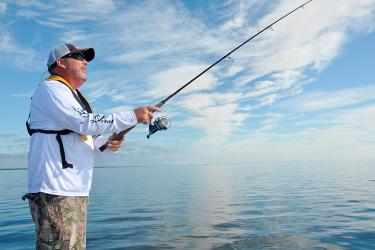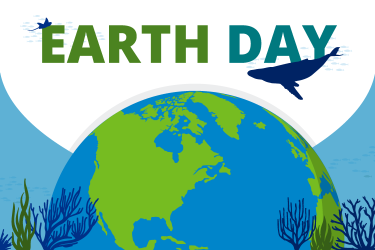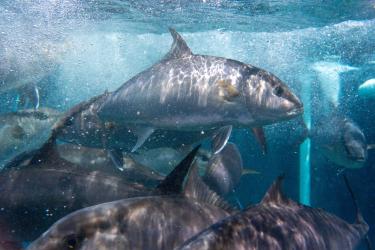Marine mammals are found all over the globe. When studied, they can serve as sentinels of ocean health. They’re high in the food chain, depend on our ocean and its resources to live, and oftentimes eat the same fish and seafood that we do. Some marine mammals are world travelers, migrating great distances to find food or mates. Others stay in smaller ranges, particular to certain bays, sounds, or estuaries. Learning about marine mammals and the challenges they face gives us important insights into the condition of our ocean, on a global and local scale.
When marine mammals are sick, in distress, or injured they can come ashore, or “strand”. Marine mammals may also wash ashore after they have died. In both cases, trained responders and scientists can gather invaluable information from these animals. Stranding networks provide us vital information about the:
-
Health of marine mammal populations and their ocean environment
-
Causes and costs of fisheries interactions
-
Responses of populations to natural and man-made disasters
Stranding networks are quite cost-effective and complement efforts to study marine mammals at sea.
How can we help ensure a trained responder is there to gather that important and time-sensitive data?

Experienced stranding responders around the world have collaborated to launch the Global Marine Animal Stranding Toolkit at GMAST.org to help expand marine mammal stranding response capabilities. Led by NOAA Fisheries, International Fund for Animal Welfare, The Marine Mammal Center, and Woods Hole Oceanographic Institution, these experienced stranding responders created the online Toolkit based on a “train the trainer” model.
The goal of this Toolkit is to help train key players in local and regional networks all over the globe. These key players then build local capacity and expertise by training multiple teams for an “on the ground” response in their area. This helps us obtain critical information around the world, while keeping humans and marine mammals safe.
The Toolkit is a work in progress. The current version provides recommended standards and skills for the inexperienced responder in marine mammal stranding response internationally. It provides a basic understanding of marine mammal stranding response and encourages the untrained volunteer or viewer to seek training and become an active responder. By employing best practices and adhering to uniform training standards and curriculum, we hope to increase the pool of skilled and knowledgeable responders and trainers across both data-poor and data-rich countries. Widespread use and evaluation of the GMAST training materials will improve connections within the global marine mammal stranding response community, facilitate sharing of data and expertise, and benefit monitoring of marine mammal health in different ecosystems. The GMAST partners are working to develop support for Phase 2 of the Toolkit, focusing on intermediate skills and techniques, to continue to improve global stranding capacity.
NOAA Fisheries partners with over 100 organizations in the United States to form our Marine Mammal Stranding Network. The Network responds to reports of sick, injured, or dead marine mammals along our coastline. They’ve spent over 26 years developing and refining the tools and techniques needed to respond effectively and safely to stranded wildlife. This toolkit provides the foundation to help spread that experience and lessons learned overseas, as well as encourage local residents to follow a similar training curriculum and engage with their authorized stranding networks to build capacity here at home.



